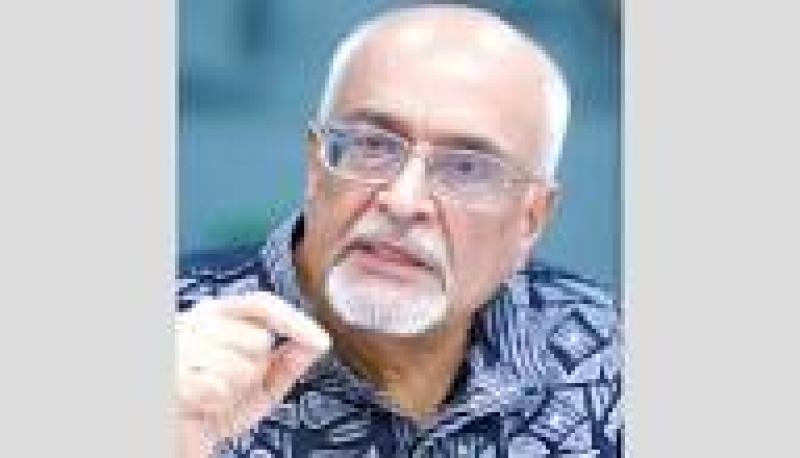- India beats Pakistan by 61 runs as World Cup scenario heats up |
- Jatiya Party routed in its fortress, Rangpur |
- Climate change cuts hilsa catch, raising long-term risks |
- Jamaat Ameer calls meeting with Tarique 'an important moment |
Economic Stability Crucial for Reform in Bangladesh
Says Dr. Debapriya Bhattacharya

Dr. Debapriya Bhattacharya, Chair of the White Paper Drafting Committee
Economic stability is vital for implementing meaningful reforms and fostering democratic progress in Bangladesh, stressed Dr. Debapriya Bhattacharya, Chair of the White Paper Drafting Committee, at a policy dialogue hosted by BRAC University.
In his speech at the seminar, titled "Financial and Economic Reform in Bangladesh – 2024," Dr. Bhattacharya emphasized the urgent need to stabilize the exchange rate and control commodity prices to avoid public unrest and ensure the success of reforms. He warned that failure to address these issues could undermine public trust and stifle meaningful change.
Dr. Bhattacharya also cautioned against an "unusual coalition" of politicians, bureaucrats, and business elites who, he argued, have perpetuated corruption and resisted necessary reforms, creating an oligarchic structure that has weakened both the financial and energy sectors. He pointed to the detrimental impact of this coalition on the country’s overall economic health.
The seminar featured a keynote address by Finance Adviser Dr. Salehuddin Ahmed, who further criticized the mismanagement of the country’s financial sector. Professor Syed Ferhat Anwar, Vice-Chancellor of BRAC University, along with Selim RF Hussain, CEO and Managing Director of BRAC Bank PLC, and Farzana Lalarukh, Commissioner of the Bangladesh Securities and Exchange Commission, were also present as special guests.
Dr. Bhattacharya, a distinguished fellow at the Centre for Policy Dialogue, voiced strong criticism of the previous government’s economic management, particularly its politicization of GDP growth figures. He questioned the credibility of the reported growth, highlighting the stagnation in private investment, the tax-to-GDP ratio, and overall revenue collection. He speculated that some of the reported economic gains could have been hidden or laundered.
The former Bangladesh Bank Governor, Abdur Rouf Talukder, came under fire from Dr. Bhattacharya, who accused him of damaging the country’s banking sector and misleading the IMF about money-printing practices. Dr. Bhattacharya alleged that political influence had compromised the integrity of Bangladesh Bank, with kickbacks leading to the dismantling of the bank’s corporate governance and the appointment of politically connected individuals to key positions.
Dr. Salehuddin Ahmed echoed these concerns, describing the state of the financial sector as "devastating" and beyond external comprehension. He lamented the destruction of key institutions, which he claimed had suffered from a lack of good governance, transparency, and accountability. Dr. Ahmed criticized the former governor’s leadership, recounting how decisions at Bangladesh Bank were often delayed as the bank’s head spent excessive time approving files. He also noted that the reserves had been depleted under the previous administration, from $42 billion to a mere $12 billion, while critical dues were being repaid without touching the remaining reserves.
Dr. Salehuddin also took aim at the government’s economic strategy, which he argued focused too narrowly on growth figures without ensuring that the benefits were equitably distributed. While official reports highlighted the growth of reserves, exports, and GDP, he pointed out that there had been little to no evaluation of whether the growth had been inclusive or whether it reached the broader population.
The discussions at the seminar underscored a pressing need for a comprehensive and inclusive approach to economic reform—one that goes beyond surface-level metrics and addresses the structural issues that continue to impede Bangladesh's long-term development.

